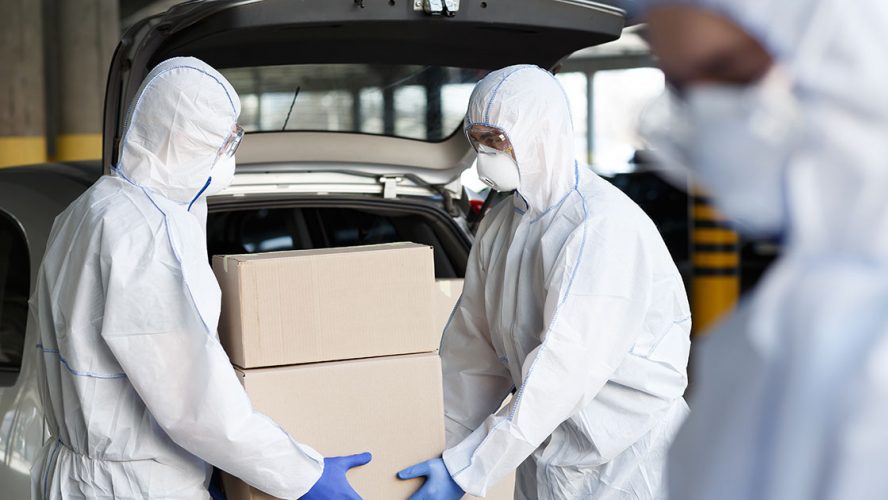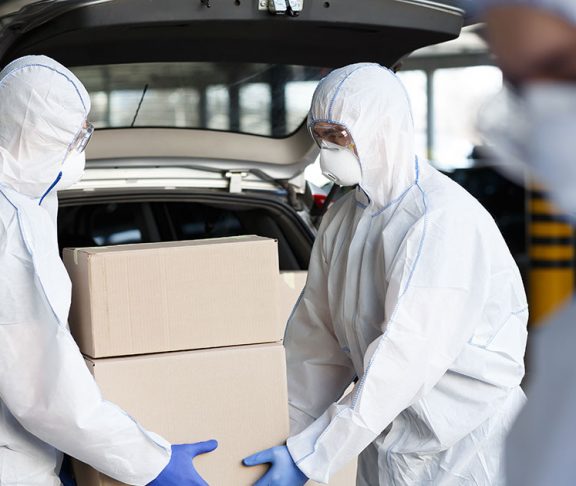As COVID-19 vaccines are starting distribution in the United States, the United Kingdom, and Canada, there are concerns about how the vaccines will be distributed globally.
Everyone should care about global access to the COVID-19 vaccine because if segments of the international population can’t get the vaccine, it impacts our collective health.
One organization, UNICEF, a non-profit, non-government organization, is helping lead the way, ensuring the most at-risk communities worldwide receive the vaccine.
A significant concern is cold chain or the process of keeping vaccines stored properly at very cold temperatures.
The respective COVID-19 vaccines by Moderna, and Pfizer and its partner BioNTech, are 95 percent effective. Each is made with mRNA, genetic materials that must be kept very cold. The Moderna vaccine must be stored long-term at -4 degrees Fahrenheit. It’s stable for 30 days between 36 to 46 degrees Fahrenheit. The Pfizer/BioNTech vaccine requires ultra-cold temperatures of -94 degrees Fahrenheit. The Pfizer vaccine vials will be shipped with dry ice.
“Countries are in different states of preparedness, and it also really does depend on the thermostability profile of the vaccine,” says Michelle Seidel, UNICEF cold chain specialist.
She says right now, countries are choosing which of the vaccines they would like. It’s not a one-size-fits-all model since each country has specific refrigeration and freezer capabilities, as well as differing power supply stability.
Ultracold temperatures can be very challenging for all countries but it’s especially challenging for low-income countries where the power infrastructure and electricity supply are not stable. In many countries around the world, ultracold chain or ultra-low temperature freezing system don’t even exist.
Collaborative effort
UNICEF has been able to leverage infrastructure that’s been built in countries that have had Ebola outbreaks. They’ve done a lot of preparation in anticipation of the COVID-19 vaccines, including securing personal protective equipment, syringes, and other supplies.
“Now we actually have to make this operational, we actually need to see how all these pieces come together,” says Seidel.
UNICEF’s ongoing efforts have been paying off. In 2015, they joined Gavi, the Vaccine Alliance and other partners to launch the Cold Chain Equipment Optimization Platform, a $400 million project to upgrade existing cold chain equipment in 56 countries by 2021.
The collaborative effort aims to strengthen vaccine supply chains and achieve better immunization equity and coverage.
Previous to this project, equipment standards in many countries didn’t match the pace of vaccine development and availability, and with older technologies, the vaccines risked being wasted due to poor temperature control.
The newer tech has included replacing gas or battery powered refrigeration systems with solar powered units. So far, UNICEF and their partners have equipped 40,000 health facilities with solar powered units. By the end of 2021, they’ll have 70,000 units deployed.
“We’ve been deploying solar technologies for quite a long time and have spent the last three or four years deploying large amounts of cold chain, particularly solid direct drives down to help facilities equipping health facilities,” says Seidel.
The project also introduced and scaled up a service bundle concept, in which manufacturers provide the equipment and manage in-country logistics, installation, and staff training.
A win-win
UNICEF says the COVID-19 pandemic is a double emergency in many countries globally, where children and families are already in need of social services and humanitarian assistance.
A major concern is that people living in at risk communities, such as Uganda or Sierra Leone, may not get vaccinated for other regularly scheduled vaccines, such as measles. This added infrastructure will help countries get on track.
“COVID-19 has been massive disruptions to vaccination campaigns and they’re really trying to catch up so,” she says. “So, this is a win-win for countries, in terms of vaccinations in general but also definitely as an add-on for them to have this kind of capacity.”
For information on how you can help UNICEF support vaccine efforts worldwide, including the COVID-19 vaccines, visit: unicef.org/coronavirus/covid-19/donate/.



